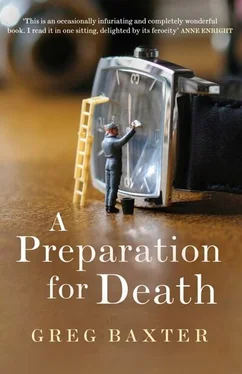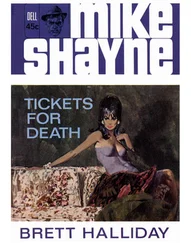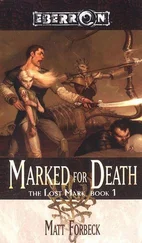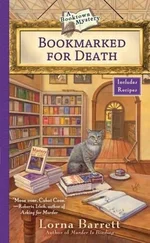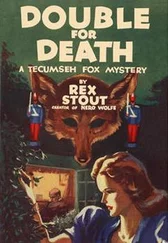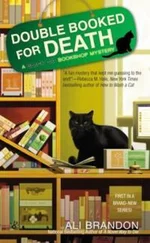I associate all these things with the manifestation of eroticism, specifically my relationship with masturbation. When I look back on it — the world under threat, Satan haunting the hallways of my house, and the birth of storytelling in me — I see myself and my eroticism as doomed lovers, gathering what beauty we could before it was all over. I know, of course, that there was also something of Orwell’s common toad in me: He goes through a phase of intense sexiness. All he knows, at least if he is a male toad, is that he wants to get his arms around something, and if you offer him a stick, or even a finger, he will cling to it with surprising strength and take a long time to discover that it is not a female toad .
In some of my nuclear holocaust fantasies — those in which I survived — I was left to wander the smouldering chaos of east Texas alone. I had a motorcycle, and went around siphoning gas from burned-down stations. I had many firearms. I began to find pockets of survivors — including popular girls I knew from school, who threw themselves at me. We fucked around little campfires, often in plain sight of the others — usually her parents. Sometimes I fucked the mothers of my friends while their husbands (often wounded) watched wantonly. I believed the act of masturbation was a sin, and this made me perform the act with more abandon. I masturbated to the fantasy of Satan and me masturbating in a bed together, and once tried (unsuccessfully) to enact this with a friend — with me playing the role of Satan.
One night, at a Baptist church near the interstate — so close you could hear eighteen-wheelers — after the preacher had shouted and frothed and spoken in tongues, and whacked women on the head with an open palm, causing them to collapse and have convulsions on the ground, while the parishioners raised their arms and their eyes rolled back in their heads, I decided to be born again. I believed it was going to be essentially the same as Catholic confession, which I had done on several occasions — though I never confessed anything of substance. The preacher told everyone to bow their heads, and those who wished to be born again should come forward and accept Jesus. I was with my cousin Chris and his mother, Linda, and when I stepped out of the pew, Chris beheld me with derision. Because we never spoke of it, I do not know if he felt I had betrayed an unspoken pact of indifference to this nonsense, or if he, perhaps, had wanted to be born again, and I had stolen a very serious moment from his life. I was guided into a room behind the altar, where men with bibles sat forward on their chairs, waiting for sinners, with the great earnestness of men trying to sell you a deal you cannot afford to pass up. I was not the only person who chose that night to be born again. The little room was full of us, some weeping happily, some quiet. The men with bibles did all the talking. I sat down across from a man with a large moustache and yellow cowboy boots. I didn’t want to admit that I masturbated many times a day, sometimes holding pairs of panties stolen from my female cousins, who were older and had large breasts, to my nose and mouth. I didn’t want to say that I was fond of Satan. But it was nothing like confession. I was told that God knew all my sins and flaws, and loved me nevertheless. I was asked to accept Jesus as my Lord and Saviour. I accepted. The man read some lines from the Bible — none of them from the Book of Revelation — and it was over. He shook my hand. I was reborn. I was sinless, completely and profoundly, for a few hours. The weight was diabolical. Seduction toward another foul revolt is always uncoiling from the tree.
Milton had a true and daring love for Satan. He compares Satan’s journey out of Chaos, by perils, to Odysseus’s return to Ithaca: harder beset and more endangered . I hardly remember studying Homer, in graduate school almost a decade ago, but I see in Milton’s Satan much of Achilles and Odysseus: bie and metis, kleos and nostos . I am reading Paradise Lost for the first time since I was eighteen, when, as a student bound for medicine, I barely paid it any attention. The poem has me thinking of Satan incessantly, admiring him, and is the occasion for my memory of east Texas, and all that came with it. There is something in Milton’s love I want to emulate. I want to satisfy my esteem for disobedience, imperfection, eroticism, and failure — not to worship but to fathom, and harness, Satanic areté . But I have only a little wrath, which I shall turn inward: I corrupt myself only. This is my definition of love.
The other day, queueing for a cash machine in a cloud of smoke from a burning rubbish bin, I thought of Satan’s vanquished army and the Stygian council’s debate: Moloch, the sceptred king, advises open war; Belial, the coward, wants ignoble ease; Mammon argues for a free hell, existence to none accountable. Beelzebub, who will propose the corruption of man — Satan’s idea — says:
What sit we then projecting peace and war?
War hath determined us …
Having got my cash, and bought a sandwich and an apple, I had twenty-five minutes of lunch hour left. There were only a few empty spots on benches remaining, and most of them were adjacent to passed-out drunks or fat men with their shirts off. Elsewhere, men and women in suits and sunglasses discussed work. Backpackers read maps and listened to iPods. Single girls read books in one hand by bending the cover all the way back. A group of out-of-work Polish men shared a bottle of something golden. Every man that passed them was asked for a cigarette. A few lovers were out: I picked a spot beside a couple discussing a holiday, but I couldn’t make out if they had been on one, or were going. I ate and observed the great lunchtime repose of the city.
That afternoon, we — the reporters — filled the last pages of the issue. I had a small pile of press releases in my inbox and pasted them, slightly rewritten, into the editorial pipe. My way of working had started as a protest: if life was going to deal me monotony, I would deal monotony back, doubled. But my protest went unnoticed. In fact, the editor told me my stories were getting better. Every week we waited so late to lay out pages that our paper was filled with typos. Violent typos. But it was summer, so nobody was reading us.
Adam humbly asks Raphael how and why the earth was created. Raphael has been commissioned by God to lend him knowledge within bounds . He reveals that Adam’s world is Christ’s trophy. And that Christ’s glory, great, was scripted. After the battle, Christ, gloating, says to God:
At least our envious Foe hath failed, who thought
All like himself rebellious …
When Adam asks for knowledge beyond his human status — why create this earth, a grain, an atom, in such disproportion to the firmament and all her numbered stars, that seem to roll spaces incomprehensible? — he is admonished. Milton sends Eve away for this admonishment; she goes to tend her nursery — a miscalculation of her rebelliousness, but deliberate. Raphael tells Adam that the great architect
Did wisely to conceal, and not divulge,
His secrets, to be scanned by them who ought
Rather admire …
Why seek to know what is beyond your belief of it? There is plenty on earth to content yourself with. Accept that God’s bright luminaries are attentive not to earth but to man. That creation is spacious so that man can know he is not alone. The unknown is on purpose, for your good.
God, to remove his ways from human sense,
Placed Heaven from Earth so far, that earthly sight,
If it presume, might err in things too high,
And no advantage gain …
…
Think only what concerns thee and thy being;
Читать дальше
